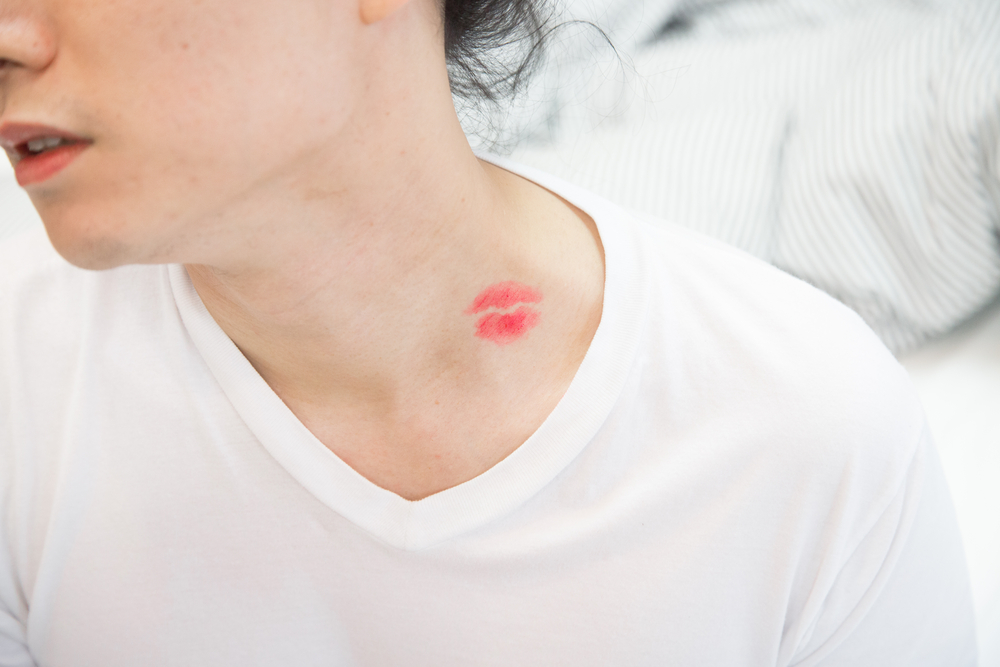Can Hickeys Cause Cancer? Debunking The Myths & Facts
Can a simple act of affection, a playful "love bite" or hickey, harbor the potential to ignite a silent threat like cancer? The short, definitive answer is no. Hickeys, despite their appearance and the temporary nature of their mark, do not cause cancer.
The realm of health and well-being is often filled with misconceptions and fears, especially when it comes to the human body and its responses to various stimuli. Hickeys, those telltale signs of passionate intimacy, often become a topic of speculation, with questions ranging from their potential health risks to their impact on one's social standing. It's crucial, however, to dissect these queries with scientific accuracy and distinguish between fact and fiction.
Hickeys, medically known as petechiae, are essentially bruises. They arise from the rupture of tiny blood vessels, known as capillaries, beneath the skin's surface. This rupture is a direct consequence of the suction and sometimes light biting applied during the act. The blood then pools in the surrounding tissues, resulting in the characteristic reddish-purple discoloration. Think of it as a localized, temporary hematoma a small collection of blood outside of a blood vessel.
Given the nature of hickeys, it's understandable that concerns may arise regarding their potential to cause harm, particularly in relation to more serious conditions like cancer. However, the fundamental biological processes involved in hickey formation do not align with the development of cancerous cells. Cancer is a complex disease characterized by uncontrolled cell growth, often driven by genetic mutations or exposure to carcinogens. Hickeys, on the other hand, are purely mechanical injuries, a localized effect of pressure and suction.
The idea that a hickey could directly trigger cancer is not supported by any scientific evidence. Cancer arises from internal, cellular-level malfunctions, not external physical trauma of this nature. Therefore, the question of whether a hickey can cause cancer can be answered categorically and without hesitation: No.
However, while hickeys themselves do not pose a cancer risk, its important to consider other health aspects. For individuals on blood thinners, the consequences of a hickey can be more pronounced. Medications like aspirin or other anticoagulants reduce the blood's ability to clot. Consequently, a hickey might manifest as a larger, more extensive bruise that lingers longer than usual. This is due to the impaired ability of the body to contain the blood within the ruptured vessels.
Further, its reasonable to wonder if there are any areas of the body that are more vulnerable to the effects of hickeys. The breasts, being a sensitive area, sometimes become the site of such marks. It is important to note that hickeys in this area are generally harmless. They don't possess any added risk of causing cancer or transmitting diseases.
The concept of a hickey resulting in blood clots is a common question as well. In the overwhelming majority of cases, hickeys do not result in blood clots. The mechanism behind a hickey broken capillaries is not the same as the processes which cause blood clots to develop. Blood clots that cause concern usually form in larger blood vessels and are often related to other underlying health issues or inactivity.
Moreover, it is important to differentiate between the temporary and permanent effects of a hickey. While hickeys cause short-term damage to blood vessels, the human body is equipped with a powerful healing mechanism. This ensures the repair and restoration of the damaged blood vessels, typically over the course of a week or two. The discoloration gradually fades as the body reabsorbs the leaked blood.
The pressure exerted during a hickey can lead to some unique circumstances, though. Its sometimes believed that deep hickeys, particularly those given near the carotid arteries in the neck, could lead to rare complications. While this is not the norm, its still crucial to be aware of the potential.
In rare instances, excessive pressure on the carotid arteries, the major blood vessels supplying blood to the head and neck, could cause damage. Such force has the potential, though unlikely, to lead to the tearing of the artery walls. Thats why it is always best to practice caution and avoid excessive pressure or suction in sensitive areas.
Hickeys, in essence, are a playful expression of affection, a temporary reminder of intimacy. They are not, however, a gateway to serious health problems like cancer. Their temporary nature, their harmlessness, and their fundamental difference in mechanism to the development of cancer make it clear that there is no cause for worry.
The information provided in this article is intended for general knowledge and informational purposes only, and does not constitute medical advice. It is essential to consult with a qualified healthcare professional for any health concerns or before making any decisions related to your health or treatment.
Ultimately, hickeys are a matter of personal preference and individual expression. They are not a health hazard, and do not deserve the often-undue concern and speculation. Enjoy them in moderation, and always prioritize informed decisions regarding your well-being.


